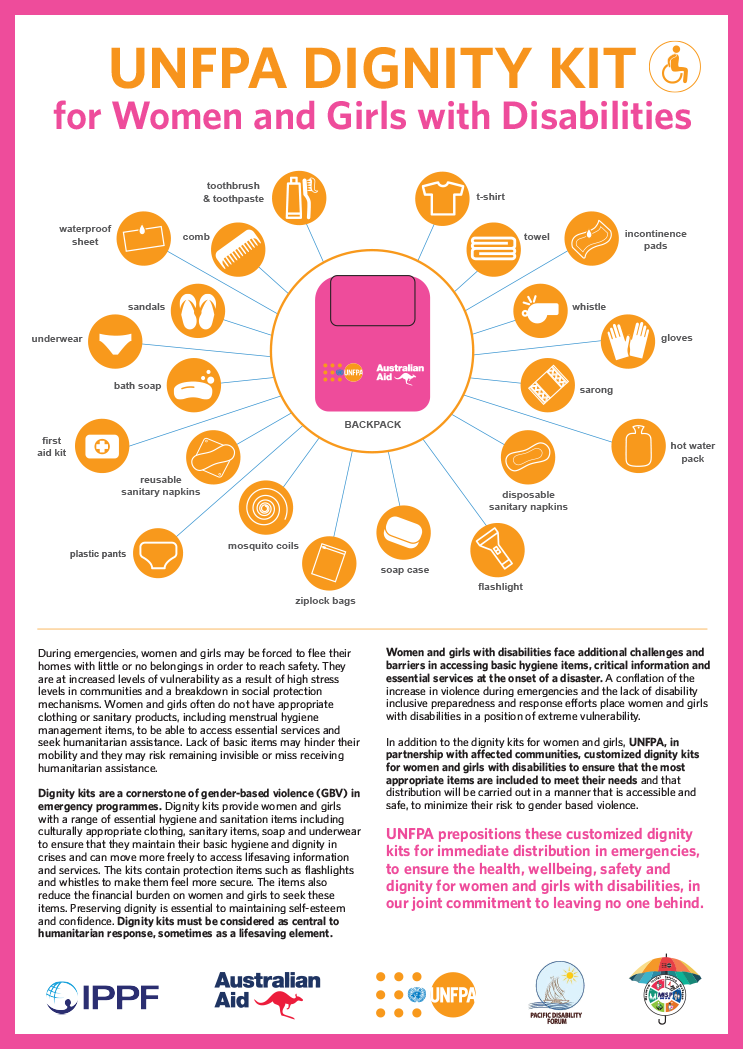News
“We are the experts on disability”: Advocate Angeline Chand urges inclusive disaster preparedness and response in Fiji
- 01 December 2023
News
SUVA, Fiji – For the millions of people spread across more than a dozen countries and territories that make up the Pacific Islands, natural hazards and climate disasters are unfortunately nothing new.
With much of the archipelago located within the world’s volcanic “ring of fire”, the risk of devastating eruptions remains high; cyclones, earthquakes, tsunamis and drought are also common occurrences.
The region’s population has had to learn to prepare for the worst. But for women with disabilities, this means an extra layer of planning, as societies often neglect their specific needs amid crisis.
“Women and girls with disabilities are more vulnerable when it comes to disasters,” disability rights advocate Angeline Chand told UNFPA, the United Nations sexual and reproductive health agency.
Disability and displacement
Across Fiji, hundreds of schools, churches and other buildings become evacuation centres during emergencies, offering local communities a safe place to shelter.
But a sense of safety is subjective. According to Ms. Chand, these centres do not always account for what women and girls with disabilities need to feel secure.
“Often we are asked why persons with disabilities don't want to evacuate. There are a lot of issues,” she said. “They are used to their home and family support systems. They are thinking twice about going to a new environment.”
Hesitation may hinge on questions like: Will my support person be with me? Are the washrooms accessible? Ms. Chand, who is blind, has asked herself similar questions.
“If I had to evacuate from my house, how would I move around in a new environment? What support systems are in place? That scares me,” she said.
Ms. Chand is the human rights and gender adviser for the Pacific Disability Forum, which – among its other work – supports audits of local buildings to provide owners with insights on what adaptations are necessary to ensure accessibility.
“Often they think we want them to change things overnight – no,” she said. “We do it together. We are the experts on disability; we have the lived experiences.”

Adapting dignity kits
Around the world, health and protection systems often struggle to account for the needs of persons with disabilities, especially amid disaster. That’s one driver behind UNFPA’s recent development of a checklist designed to ensure the meaningful engagement of young persons with disabilities in humanitarian action.
But in Fiji, as elsewhere, women and girls with disabilities report struggling to access sexual and reproductive health care – being confronted with communications challenges, stigma and discrimination by health-care providers and physical and geographic barriers to clinics. Gender-based violence is also a pressing concern.
UNFPA works to bridge these gaps during crises through the distribution of dignity kits containing essential hygiene and sanitation items for women and girls, such as reusable menstrual pads and culturally appropriate clothing and underwear. The kits also include items like flashlights and whistles to make women and girls feel more secure and aid with mobility.
Until 2019, however, these kits had not been customized to suit the needs of women and girls with disabilities. Through consultations organized by UNFPA, International Planned Parenthood Federation and the Pacific Disability Forum and with funding from Australia the kits were reviewed with recommendations put forward by women with disabilities to ensure their usefulness.
“The suggestions raised, no one else had ever thought about them,” Ms. Chand said, recalling one colleague who – having no control of her hands – noted she could not turn on the kit’s flashlight.
Today, the customized kits contain items such as waterproof sheets, plastic underwear, first aid kits, hot water packs, plastic gloves, incontinence pads and flashlights with bigger buttons, which have been included based on the recommendation of women with disabilities.
“We are getting very good feedback from the users that [the kits are] very beneficial to their needs and meet their requirements,” Ms. Chand said.